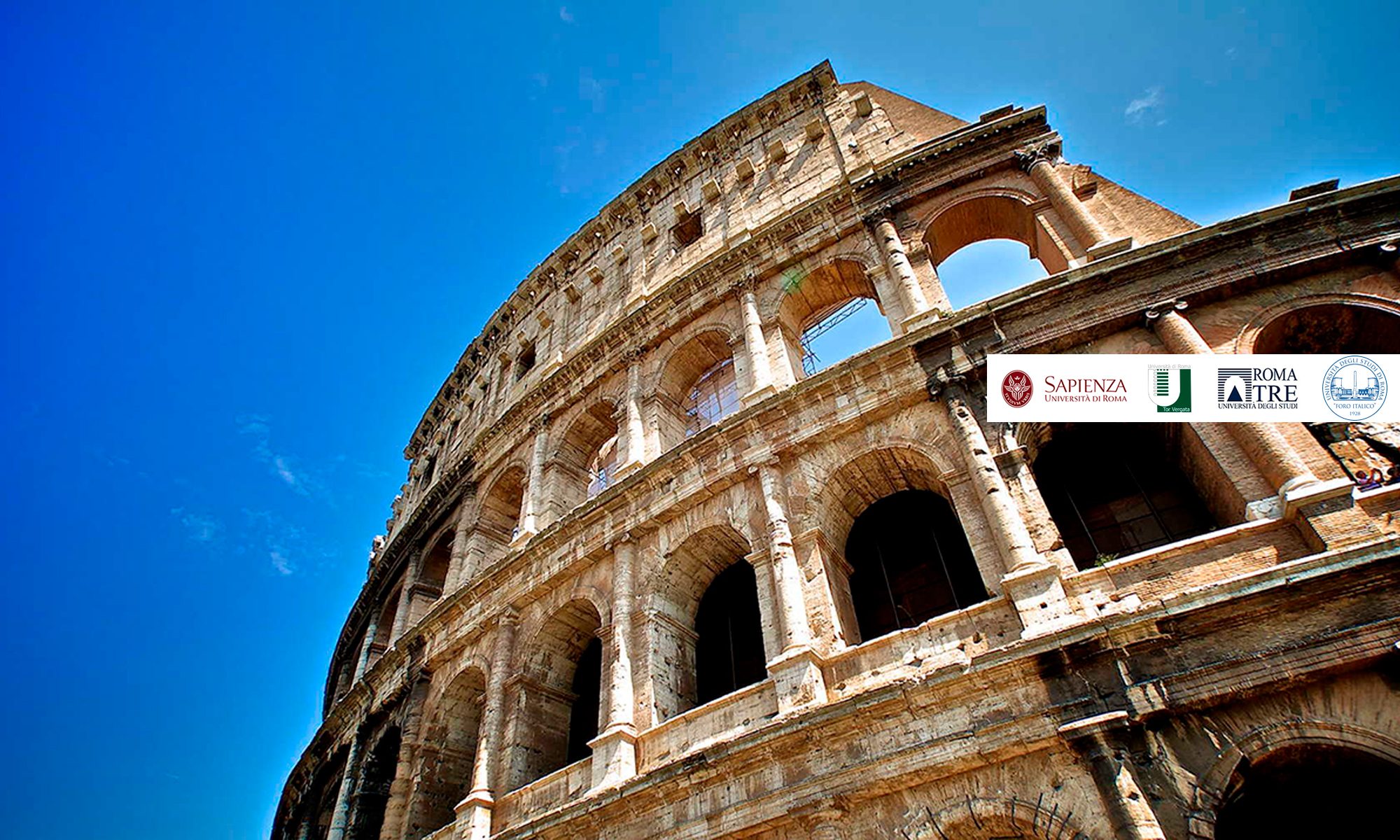Sapienza University of Rome
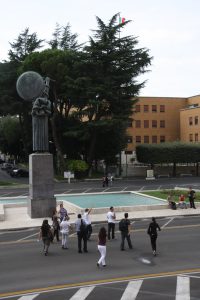 Sapienza University, which was founded in 1303 as the “Studium Urbis,” is the university with the largest student population in Europe: over 115,000 students. Merging centuries of knowledge and tradition with cutting-edge research and innovation, Sapienza provides a unique environment, where students are encouraged to exchange ideas and philosophies. And it all takes place in one of the most breath-taking cities in the world: Rome.
Sapienza University, which was founded in 1303 as the “Studium Urbis,” is the university with the largest student population in Europe: over 115,000 students. Merging centuries of knowledge and tradition with cutting-edge research and innovation, Sapienza provides a unique environment, where students are encouraged to exchange ideas and philosophies. And it all takes place in one of the most breath-taking cities in the world: Rome.
Sapienza University is organised into 11 faculties, 63 departments and various research centres that provide students with a vast choice of courses and degree programmes, including programmes held entirely in English.
Throughout the course of the year, Sapienza also organises a myriad cultural, social and sporting activities to encourage students to conduct a well-rounded social life.
University of Rome Tor Vergata
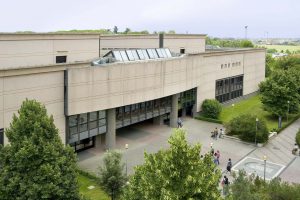
The University of Rome Tor Vergata is a public University established in 1982. It was designed on the model of Anglo-Saxon campuses: it spreads over 600 hectares and hosts important research institutions, such as CNR and the Italian Space Agency – ASI.
Moreover, the Campus hosts one of the most modern hospitals in Italy, i.e. University Hospital Tor Vergata, a care and research centre which is well equipped with diagnostic and therapeutic vanguard structures and where the Medical School is active as well.
More than 38.000 students are currently studying in its 6 schools: Economics, Engineering, Humanities, Law, Medicine and Sciences.
Thanks to its several international agreements and to 14 courses held in English, it hosts many international students and researchers every year.
Tor Vergata University is also one of the largest research based institutions in Italy and a well known international centre for research and education. In the last years the activity of technology transfer and cooperation with public and private organizations in different fields has obtained an increasingly important role.
www.uniroma2.it
Roma Tre University
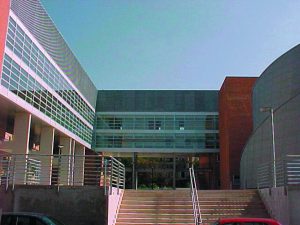 Founded in 1992, Roma Tre University has gained a significant reputation in the academic world thanks to its quality teaching and research programmes. Currently ranked 72nd out of 150, in the 2016 Times Higher Education Under 50 Ranking, it strives towards innovative and advanced research, excellence in higher education, as well as towards a leading role in the cultural and technological innovation of the knowledge society and its sustainable development. The architectural structures of its premises – old and discontinued plants in the city transformed into factories of ideas and knowledge -, famous for their extraordinary aesthetics, have modified the surrounding territory, bringing urban value to the entire quadrant, synthesising complementarities between form and substance and becoming attractive meeting points for students and Rome inhabitants. Roma Tre University is organised in 12 Departments, offering over 70 degree courses and 31 PhD courses in a variety of academic fields of study. Among its facilities: the Palladium Theatre, 10 multidisciplinary libraries, various sport facilities, a choir, an orchestra, a web radio, a digital publishing house and a fleet of bicycles.
Founded in 1992, Roma Tre University has gained a significant reputation in the academic world thanks to its quality teaching and research programmes. Currently ranked 72nd out of 150, in the 2016 Times Higher Education Under 50 Ranking, it strives towards innovative and advanced research, excellence in higher education, as well as towards a leading role in the cultural and technological innovation of the knowledge society and its sustainable development. The architectural structures of its premises – old and discontinued plants in the city transformed into factories of ideas and knowledge -, famous for their extraordinary aesthetics, have modified the surrounding territory, bringing urban value to the entire quadrant, synthesising complementarities between form and substance and becoming attractive meeting points for students and Rome inhabitants. Roma Tre University is organised in 12 Departments, offering over 70 degree courses and 31 PhD courses in a variety of academic fields of study. Among its facilities: the Palladium Theatre, 10 multidisciplinary libraries, various sport facilities, a choir, an orchestra, a web radio, a digital publishing house and a fleet of bicycles.
www.uniroma3.it
University of Rome Foro Italico
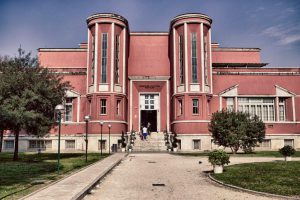 The University of Rome Foro Italico is the fourth public university in Rome and is the heir of the Italian Academy for Physical Education founded in 1928. Its urban campus is located in the northern part of Rome, in the historical area of Foro Italico, a 10.000 square meters venue that hosts the Olympic Stadium and important annual tournaments and competitions. The University is the only Italian teaching and research institution entirely devoted to the study of sport and physical activity. It is provided with modern sport and training facilities along with modern laboratories which support the development of research applied to the interdisciplinary scholarly field of Sport Sciences.
The University of Rome Foro Italico is the fourth public university in Rome and is the heir of the Italian Academy for Physical Education founded in 1928. Its urban campus is located in the northern part of Rome, in the historical area of Foro Italico, a 10.000 square meters venue that hosts the Olympic Stadium and important annual tournaments and competitions. The University is the only Italian teaching and research institution entirely devoted to the study of sport and physical activity. It is provided with modern sport and training facilities along with modern laboratories which support the development of research applied to the interdisciplinary scholarly field of Sport Sciences.
The University is a community of 2.300 students and about 60 scholars who share the ethical and social values of sport. Currently the University offers a 3-year Bachelor Degree (BSc) and 4 Masters Courses (2-year MA). These courses are: Sport and Motor Sciences (first level); Sport Management, Adapted Physical Activity, Health and Physical Activity (taught in English), Sport Science and Technique (second level) and a further research-oriented post graduate course (3-year PhD) in Sciences of Human Movement and Sport. The Degree courses are offered by the Department of Movement, Human and Health Sciences which is divided into 3 divisions:
- Human Movement and Sport Sciences
- Human and Social Sciences
- Health Sciences
The University is very active in the field of international relations, cooperation and projects development with more than 160 agreements with the most important European and worldwide academic and research centers focused on the study of sport and physical activity.
www.uniroma4.it
UNICA
UNICA – institutional Network of the Universities from the Capitals of Europe, brings together 46 member universities from 35 capitals of Europe and combines the strength of over 150,000 staff members and 1,800,000 students in 35 countries. It was founded in 1990 and is a leading institutional academic inter-university network in Europe. UNICA seeks to be a driving force in the development of the European Higher Education Area and to promote academic excellence, integration and co-operation between member universities throughout Europe.
UNICA offers a forum in which Member Universities can reflect on the latest developments and demands of strategic change in university research, education and administration. In this context, the Network organises member-driven activities, the content, format, and frequency of which depend substantially on UNICA Members’ engagement and interest. The programmes of the activities are prepared by relevant UNICA working groups in cooperation with the UNICA Board and the UNICA Secretariat in Brussels. UNICA activities and projects are organised around traditional clusters: Internationalisation & Mobility, Education, Research & Development, Policy & Strategy, and Mission & Link with Society.
The UNICA Student Conferences, organised every two years since 2000, aim to offer the students of UNICA Member Universities a “mobility in a nutshell” experience, let them share their views on European Higher Education’s most pertinent issues in a highly international and multicultural environment and encourage them to formulate their opinions and recommendations that could give birth to new exciting initiatives.
UNICA is a collective associate member of European University Association (EUA) and the International Association of Universities (IAU). It also cooperates closely with student networks and organisations, particularly with Erasmus Student Network (ESN) and European Student Union (ESU).
http://www.unica-network.eu/
